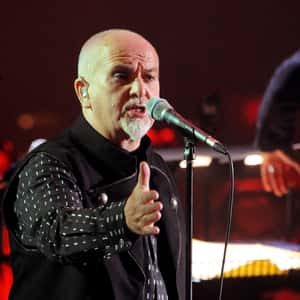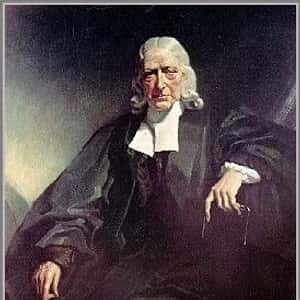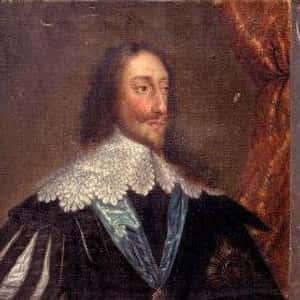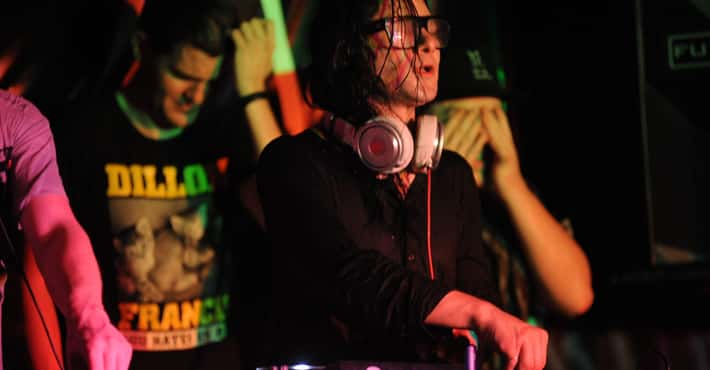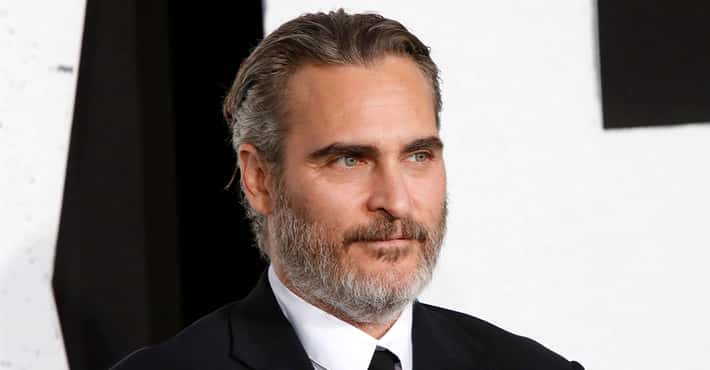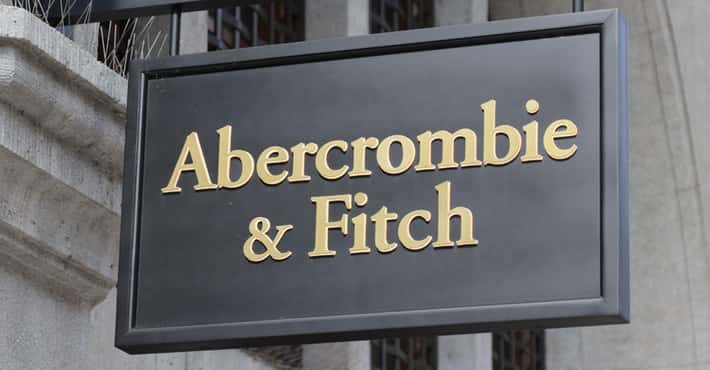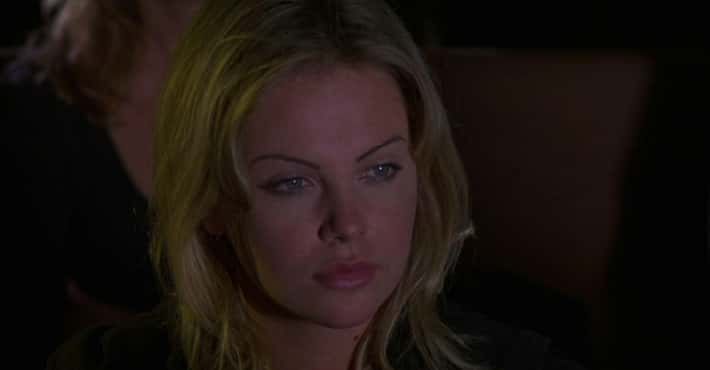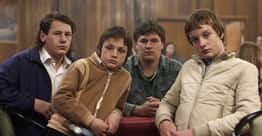Famous Charterhouse School Alumni
List of famous alumni from Charterhouse School, with photos when available. Prominent graduates from Charterhouse School include celebrities, politicians, business people, athletes and more. This list of distinguished Charterhouse School alumni is loosely ordered by relevance, so the most recognizable celebrities who attended Charterhouse School are at the top of the list. This directory is not just composed of graduates of this school, as some of the famous people on this list didn't necessarily earn a degree from Charterhouse School.
The list you're viewing is made up of graduates like Peter Gabriel and Ralph Vaughan Williams.
This list answers the questions “Which famous people went to Charterhouse School?” and “Which celebrities are Charterhouse School alumni?”- ProgrammerJames Clark (23 February 1964) is the author of groff and expat, and has done much work with open-source software and XML. Born in London and educated at Charterhouse and Merton College, Oxford, Clark has lived in Bangkok, Thailand since 1995, and is now a permanent resident. He owns a company called Thai Open Source Software Center, which provides him a legal framework for his open-source activities. For the GNU project, he wrote groff, as well as an XML editing mode for GNU Emacs.
- PoliticianWilliam Clark Haines (10 January 1810 – 3 February 1866), Australian colonial politician, was the first Premier of Victoria. Haines was born in London, the son of John Haines, a physician. He was educated at Charterhouse School and Caius College, Cambridge, where he graduated in medicine; he later practiced surgery for several years. In 1835 he married Mary Dugard, with whom he had nine children. Haines migrated to the Port Phillip District (later Victoria) in 1841 and settled in the Geelong area. He farmed in the area as well as practising as a surgeon. He was appointed a member of the Victorian Legislative Council (then a partly elected, partly appointive body) in 1851, and in 1853 he was elected for district of Grant. He served as colonial secretary 1854–55. Politically, he represented the small farmers against the squatters who owned most of Victoria's land. When Victoria gained full responsible government in 1855, Haines was leader of the Government. He was commissioned as Victoria's first premier and chief secretary on 28 November 1855 and served until 11 March 1857. Haines was elected to the Legislative Assembly for South Grant in November 1856. Haines was again premier from April 1857 to March 1858. Haines then visited Europe for three years. In 1860 he moved to the seat of Portland which he represented until 1864. Haines served as treasurer from 14 November 1861 to 27 June 1863, in the third O'Shanassy government. He served again in the legislative council, representing Eastern Province, from August 1865 until his death in February 1866.The historian Raymond Wright describes Haines as a bluff, plain "honest farmer" type, who was "much enjoyed for his appalling public speaking." His main concern as premier was to democratise the Constitution which had been drawn up for Victoria by colonial officials before self-government, mainly to protect the interests of the squatter class. A bill was introduced to enlarge the Assembly, redraw electoral boundaries and abolish the property qualification for both votes and candidates. But the unstable situation in the Assembly brought his ministry to an early end.
- Television director, Film Producer, Film DirectorPeter James Yates (24 July 1929 – 9 January 2011) was an English film director and producer. He was born in Aldershot, Hampshire.More Peter Yates
- Dig Deeper...Famous People Who Died in England
- #31 of 87 onThe Greatest Directors Of The 1970s
- #23 of 65 onCelebrity Deaths: 2011 Famous Deaths List
- Film Score Composer, Record producer, SongwriterAcclaimed British singer-songwriter Peter Gabriel is often recognized for his innovative approach to music and video production. Born in Chobham, Surrey, England, in 1950, Gabriel's musical journey began as the original lead singer of the pioneering progressive rock band Genesis. He co-founded the group in 1967, and from the outset, his flamboyant stage presence and distinctive vocal abilities played a key role in the band's early success. In 1975, Gabriel made the bold decision to leave Genesis and embark on a solo career. This brave leap into the unknown resulted in a series of groundbreaking self-titled albums that showcased his unique blend of rock, pop, and world music. His third album, affectionately known as Melt, was a critical and commercial success that solidified his reputation as a daring and innovative artist. His illustrious career is also marked by his 1986 hit "Sledgehammer", which remains one of the most iconic music videos ever produced, highlighting Gabriel's dedication to pushing creative boundaries. Beyond his immense contributions to music, Peter Gabriel has also distinguished himself as a humanitarian. He co-founded the benefit concert series WOMAD (World of Music, Arts and Dance) to promote global music and culture. Moreover, he established the human rights organization Witness, committed to using video technology to expose human rights abuses worldwide. These endeavors demonstrate Gabriel's profound passion for social justice and equality, further magnifying his influence beyond the realm of music.More Peter Gabriel
- Dig Deeper...The Best Peter Gabriel Songs of All Time
- #128 of 556 onThe 250+ Best Singers Of All Time, Ranked
- #35 of 203 onThe Greatest Living Rock Songwriters
Ralph Vaughan Williams
Librettist, ComposerRalph Vaughan Williams ( (listen); 12 October 1872 – 26 August 1958) was an English composer. His works include operas, ballets, chamber music, secular and religious vocal pieces and orchestral compositions including nine symphonies, written over sixty years. Strongly influenced by Tudor music and English folk-song, his output marked a decisive break in British music from its German-dominated style of the 19th century. Vaughan Williams was born to a well-to-do family with strong moral views and a progressive social outlook. Throughout his life he sought to be of service to his fellow citizens, and believed in making music as available as possible to everybody. He wrote many works for amateur and student performance. He was musically a late developer, not finding his true voice until his late thirties; his studies in 1907–1908 with the French composer Maurice Ravel helped him clarify the textures of his music and free it from Teutonic influences. Vaughan Williams is among the best-known British symphonists, noted for his very wide range of moods, from stormy and impassioned to tranquil, from mysterious to exuberant. Among the most familiar of his other concert works are Fantasia on a Theme by Thomas Tallis (1910) and The Lark Ascending (1914). His vocal works include hymns, folk-song arrangements and large-scale choral pieces. He wrote eight works for stage performance between 1919 and 1951. Although none of his operas became popular repertoire pieces, his ballet Job: A Masque for Dancing (1930) was successful and has been frequently staged. Two episodes made notably deep impressions in Vaughan Williams's personal life. The First World War, in which he served in the army, had a lasting emotional effect. Twenty years later, though in his sixties and devotedly married, he was reinvigorated by a love affair with a much younger woman, who later became his second wife. He went on composing through his seventies and eighties, producing his last symphony months before his death at the age of eighty-five. His works have continued to be a staple of the British concert repertoire, and all his major compositions and many of the minor ones have been recorded.- Dig Deeper...Famous People Who Died in England
- #43 of 252 onThe Best Classical Composers
- #36 of 76 onWho Is The Most Famous Williams In The World?
- Poet, Essayist, PlaywrightJoseph Addison (1 May 1672 – 17 June 1719) was an English essayist, poet, playwright, and politician. He was the eldest son of The Reverend Lancelot Addison. His name is usually remembered alongside that of his long-standing friend Richard Steele, with whom he founded The Spectator magazine.
- Poet, Novelist, AuthorRobert von Ranke Graves (24 July 1895 – 7 December 1985) was a British poet, historical novelist, critic, and classicist. His father was Alfred Perceval Graves, a celebrated Irish poet and figure in the Gaelic revival; they were both Celticists and students of Irish mythology. Graves produced more than 140 works. Graves's poems—together with his translations and innovative analysis and interpretations of the Greek myths; his memoir of his early life, including his role in World War I, Good-Bye to All That; and his speculative study of poetic inspiration, The White Goddess—have never been out of print.He earned his living from writing, particularly popular historical novels such as I, Claudius; King Jesus; The Golden Fleece; and Count Belisarius. He also was a prominent translator of Classical Latin and Ancient Greek texts; his versions of The Twelve Caesars and The Golden Ass remain popular for their clarity and entertaining style. Graves was awarded the 1934 James Tait Black Memorial Prize for both I, Claudius and Claudius the God.
- HistorianGeorge Grote (; 17 November 1794 – 18 June 1871) was an English political radical and classical historian. He is now best known for his major work, the voluminous History of Greece.
- Orde Charles Wingate & Two Bars (26 February 1903 – 24 March 1944) was a senior British Army officer, known for his creation of the Chindit deep-penetration missions in Japanese-held territory during the Burma Campaign of World War II. Wingate was an exponent of unconventional military thinking and the value of surprise tactics. Assigned to Mandatory Palestine, he became a supporter of Zionism, and set up a joint British-Jewish counter-insurgency unit. Under the patronage of the area commander Archibald Wavell, Wingate was given increasing latitude to put his ideas into practice during World War II. He created units in Abyssinia and Burma. At a time when Britain was in need of morale-boosting generalship, Wingate attracted British Prime Minister Winston Churchill's attention with a self-reliant aggressive philosophy of war, and was given resources to stage a large-scale operation. The last Chindit campaign may have determined the outcome of the Battle of Kohima, although the offensive into India by the Japanese may have occurred because Wingate's first operation had demonstrated the possibility of moving through the jungle. In practice, both Japanese and British forces suffered severe supply problems and malnutrition. Wingate was killed in an aircraft accident late in the war. The casualty rate the Chindits suffered, especially from disease, is a continuing controversy. Wingate believed that resistance to infection could be improved by inculcating a tough mental attitude, but medical officers considered his methods unsuited to a tropical environment.
- WriterCharles le Gai Eaton (also known as Hasan le Gai Eaton or Hassan Abdul Hakeem; 1 January 1921 – 26 February 2010) was a British diplomat, writer and Sufist Islamic scholar.
Bernard Kettlewell
Henry Bernard Davis Kettlewell (24 February 1907 – 11 May 1979) was a British geneticist, lepidopterist and medical doctor, who performed research on the influence of industrial melanism on peppered moth (Biston betularia) coloration, showing why moths are darker in polluted areas. This experiment is cited as a classic demonstration of natural selection in action. After live video record of the experiment with Niko Tinbergen, Sewall Wright called the study as "the clearest case in which a conspicuous evolutionary process has actually been observed."- Film Score Composer, Record producer, SongwriterKarl Edmond De Vere Wallinger (born 19 October 1957, Prestatyn, Wales) is a Welsh musician, songwriter and record producer. He is best known for leading the band World Party and for his mid-1980s stint in The Waterboys. He also wrote and originally released the song "She's the One", which was later covered by Robbie Williams and became a hit single.Wallinger is a multi-instrumentalist, enabling him to demo and record the bulk of World Party material as a one-man band. He plays the guitar left-handed.
- Film Score Composer, Musician, ComposerAnthony George Banks (born 27 March 1950) is an English musician, songwriter and film composer primarily known as the keyboardist and founding member of the rock band Genesis. Banks is also a prolific solo artist, releasing six solo albums that range through progressive rock, pop, and classical music. Banks co-formed Genesis in 1967 while studying at Charterhouse as their keyboardist and one of their principal songwriters and lyricists. He became a prolific user of the Hammond T-102 organ, Mellotron, ARP Pro Soloist and Yamaha CP-70 piano. In the band's earliest years Banks would play acoustic guitar for some of the mellow and pastoral songs. In 2010, Banks was inducted into the Rock and Roll Hall of Fame as a member of Genesis. In 2015, he was named "Prog God" at the Progressive Music Awards. Banks is ranked No. 11 on MusicRadar's greatest keyboard players of all time.More Tony Banks
- #150 of 203 onThe Greatest Living Rock Songwriters
- #608 of 863 onThe 250+ Greatest Rock Bands Of All Time, Ranked
- #18 of 33 onThe Greatest Organists in Rock and Jazz History
- Film Score Composer, Songwriter, MusicianMichael John Cloete Crawford Rutherford (born 2 October 1950) is an English guitarist, songwriter, and singer who co-founded the rock band Genesis in 1967. He is one of the group's two continuous members along with keyboardist Tony Banks.Initially serving as Genesis's bass guitarist and backing vocalist, Rutherford also performed most of the band's rhythm guitar parts—frequently on twelve-string guitar—in collaboration with successive Genesis lead guitarists Anthony Phillips and Steve Hackett. Following Hackett's departure from Genesis in 1977, Rutherford assumed the additional role of lead guitarist on the band's studio albums (beginning with ...And Then There Were Three... in 1978). Rutherford was one of the main Genesis songwriters throughout their career and wrote the lyrics for some of the band's biggest international hits, such as "Follow You Follow Me", "Turn It On Again", "Land of Confusion" and "Throwing It All Away". He was inducted into the Rock and Roll Hall of Fame as a member of Genesis in 2010. In addition to his work with Genesis, Rutherford released two solo albums in the early 1980s. In 1985, he formed the highly-successful band Mike and the Mechanics, which became a chart-topping act and significant live draw in its own right, and earned Rutherford an Ivor Novello Award for the 1988 single "The Living Years".
- Priest, Theologian, PreacherJohn Wesley (; 28 June [O.S. 17 June] 1703 – 2 March 1791) was an English cleric, theologian and evangelist who was a leader of a revival movement within the Church of England known as Methodism. The societies he founded became the dominant form of the independent Methodist movement that continues to present. Educated at Charterhouse and Christ Church, Oxford, Wesley was elected a fellow of Lincoln College, Oxford in 1726 and ordained as an Anglican priest two years later. He led the "Holy Club", a society formed for the purpose of study and the pursuit of a devout Christian life; it had been founded by his brother, Charles, and counted George Whitefield among its members. After an unsuccessful ministry of two years at Savannah in the Georgia Colony, Wesley returned to London and joined a religious society led by Moravian Christians. On 24 May 1738 he experienced what has come to be called his evangelical conversion, when he felt his "heart strangely warmed". He subsequently left the Moravians, beginning his own ministry. A key step in the development of Wesley's ministry was, like Whitefield, to travel and preach outdoors. In contrast to Whitefield's Calvinism, Wesley embraced Arminian doctrines. Moving across Great Britain and Ireland, he helped form and organise small Christian groups that developed intensive and personal accountability, discipleship and religious instruction; most importantly, he appointed itinerant, unordained evangelists to care for these groups of people. Under Wesley's direction, Methodists became leaders in many social issues of the day, including prison reform and the abolition of slavery. Although he was not a systematic theologian, Wesley argued for the notion of Christian perfection and against Calvinism—and, in particular, against its doctrine of predestination. He held that, in this life, Christians could achieve a state where the love of God "reigned supreme in their hearts", giving them outward holiness. His evangelicalism, firmly grounded in sacramental theology, maintained that means of grace were the manner by which God sanctifies and transforms the believer, encouraging people to experience Jesus Christ personally. Wesley's teachings, collectively known as Wesleyan theology, continue to underpin the doctrine of the Methodist Churches. Throughout his life, Wesley remained within the established Church of England, insisting that the Methodist movement lay well within its tradition. In his early ministry, Wesley was barred from preaching in many parish churches and the Methodists were persecuted; he later became widely respected and, by the end of his life, had been described as "the best loved man in England". In 2002, he was placed at number 50 in the BBC's poll of the 100 Greatest Britons.
- Journalist, Screenwriter, AuthorJeremy Dickson Paxman (born 11 May 1950) is a British broadcaster, journalist, author, and television presenter. Born in Leeds, Paxman was educated at Malvern College and St Catharine's College, Cambridge, where he edited the undergraduate newspaper Varsity. At Cambridge, he was a member of a Labour Party club and described himself as a socialist, although in later life described himself as a one-nation conservative. He joined the BBC in 1972, initially at BBC Radio Brighton, although relocated to London in 1977. In coming years, he worked on Tonight and Panorama before becoming a newsreader for the BBC Six O'Clock News and later a presenter on Breakfast Time. In 1989, he became a presenter for the BBC Two programme Newsnight, during which he interviewed a wide number of political figures. Paxman became known for his forthright and abrasive interviewing style, particularly when interrogating politicians. These appearances were sometimes criticised as aggressive, intimidating and condescending, yet also applauded as tough and incisive. In 2014, Paxman left Newsnight after 25 years as its presenter. Since then, he has done occasional work for Channel 4 News. Since its revival in 1994, he has been the presenter of University Challenge.
- Novelist, AuthorWilliam Makepeace Thackeray (; 18 July 1811 – 24 December 1863) was a British novelist, author and illustrator. He is known for his satirical works, particularly Vanity Fair, a panoramic portrait of English society.
- Professor, Writer, LawyerPhilip Antony Jeyaretnam (born 1964) is the Singapore chief executive officer and global vice-chair at Dentons. He is a Senior Counsel and a former President of the Law Society of Singapore. He is also a Singaporean lawyer and novelist. He is the son of Joshua Benjamin Jeyaretnam, who was a prominent opposition politician in Singapore. His brother, Kenneth Jeyaretnam, is the secretary-general of the opposition Reform Party.
- Judge, Barrister, JuristSir William Blackstone (10 July 1723 – 14 February 1780) was an English jurist, judge and Tory politician of the eighteenth century. He is most noted for writing the Commentaries on the Laws of England. Born into a middle-class family in London, Blackstone was educated at Charterhouse School before matriculating at Pembroke College, Oxford in 1738. After switching to and completing a Bachelor of Civil Law degree, he was made a Fellow of All Souls, Oxford on 2 November 1743, admitted to Middle Temple, and called to the Bar there in 1746. Following a slow start to his career as a barrister, Blackstone became heavily involved in university administration, becoming accountant, treasurer and bursar on 28 November 1746 and Senior Bursar in 1750. Blackstone is considered responsible for completing the Codrington Library and Warton Building, and simplifying the complex accounting system used by the college. On 3 July 1753 he formally gave up his practice as a barrister and instead embarked on a series of lectures on English law, the first of their kind. These were massively successful, earning him a total of £453 (£69,000 in 2019 terms), and led to the publication of An Analysis of the Laws of England in 1756, which repeatedly sold out and was used to preface his later works. On 20 October 1758 Blackstone was confirmed as the first Vinerian Professor of English Law, immediately embarking on another series of lectures and publishing a similarly successful second treatise, titled A Discourse on the Study of the Law. With his growing fame, Blackstone successfully returned to the bar and maintained a good practice, also securing election as Tory Member of Parliament for the rotten borough of Hindon on 30 March 1761. In November 1765 he published the first of four volumes of Commentaries on the Laws of England, considered his magnum opus; the completed work earned Blackstone £14,000 (£1,912,000 in 2019 terms). After repeated failures, he successfully gained appointment to the judiciary as a Justice of the Court of King's Bench on 16 February 1770, leaving to replace Edward Clive as a Justice of the Common Pleas on 25 June. He remained in this position until his death, on 14 February 1780. Blackstone's legacy and main work of note is his Commentaries. Designed to provide a complete overview of English law, the four-volume treatise was repeatedly republished in 1770, 1773, 1774, 1775, 1778 and in a posthumous edition in 1783. Reprints of the first edition, intended for practical use rather than antiquary interest, were published until the 1870s in England and Wales, and a working version by Henry John Stephen, first published in 1841, was reprinted until after the Second World War. Legal education in England had stalled; Blackstone's work gave the law "at least a veneer of scholarly respectability". William Searle Holdsworth, one of Blackstone's successors as Vinerian Professor, argued that "If the Commentaries had not been written when they were written, I think it very doubtful that the United States, and other English speaking countries would have so universally adopted the common law." In the United States, the Commentaries influenced Alexander Hamilton, John Marshall, James Wilson, John Jay, John Adams, James Kent and Abraham Lincoln, and remain frequently cited in Supreme Court decisions.
- Poet, TeacherRichard Crashaw (c. 1613 – 21 August 1649), was an English poet, teacher, Anglican cleric and Catholic convert, who was among the major figures associated with the metaphysical poets in seventeenth-century English literature. Crashaw was the son of a famous Anglican divine with Puritan beliefs who earned a reputation as a hard-hitting pamphleteer and polemicist against Catholicism. After his father's death, Crashaw was educated at Charterhouse School and Pembroke College, Cambridge. After taking a degree, Crashaw taught as a fellow at Peterhouse, Cambridge and began to publish religious poetry that expressed a distinct mystical nature and an ardent Christian faith. Crashaw was ordained as a clergyman in the Church of England and in his theology and practice embraced the High Church ritual reforms enacted by Archbishop Laud. Rev. Crashaw's became infamous among English Puritans for his use of religious art to decorate his church, for his devotion to the Virgin Mary, for his use of Catholic vestments, and for many other reasons. During these years, however, the University of Cambridge was a hotbed for such practices and for Royalist politics. Adherents of both positions were violently persecuted by Puritan forces during and after the English Civil War (1642–1651). When Puritan General Oliver Cromwell seized control of the city in 1643, Crashaw was ejected from his post and became a refugee in France and in the Papal States. He found employment as an attendant to Cardinal Giovanni Battista Maria Pallotta at Rome. While in exile he converted from Anglicanism to Catholicism. In April 1649, Cardinal Pallotta appointed Crashaw to a minor benefice as canon of the Shrine of the Holy House at Loreto where he died suddenly four months later. Crashaw's poetry, although often categorised with those of the contemporary English metaphysical poets, exhibits similarities with the Baroque poets and influenced in part by the works of Italian and Spanish mystics. It draws parallels "between the physical beauties of nature and the spiritual significance of existence". His work is said to be marked by a focus toward "love with the smaller graces of life and the profounder truths of religion, while he seems forever preoccupied with the secret architecture of things".
- BarristerSir Patrick Gardiner Hastings, (17 March 1880 – 26 February 1952) was a British barrister and politician noted for his long and highly successful career as a barrister and his short stint as Attorney General. He was educated at Charterhouse School until 1896, when his family moved to continental Europe. There he learnt to shoot and ride horses, allowing him to join the Suffolk Imperial Yeomanry after the outbreak of the Second Boer War. After demobilisation he worked briefly as an apprentice to an engineer in Wales before moving to London to become a barrister. Hastings joined the Middle Temple as a student on 4 November 1901, and after two years of saving money for the call to the Bar he finally qualified as a barrister on 15 June 1904. Hastings first rose to prominence as a result of the Case of the Hooded Man in 1912, and became noted for his skill at cross-examinations. After his success in Gruban v Booth in 1917, his practice steadily grew, and in 1919 he became a King's Counsel (KC). Following various successes as a KC in cases such as Sievier v Wootton and Russell v Russell, his practice was put on hold in 1922 when he was returned as the Labour Member of Parliament for Wallsend. Hastings was appointed Attorney General for England and Wales in 1924, by the first Labour government, and knighted. His authorisation of the prosecution of J. R. Campbell in what became known as the Campbell Case, however, led to the fall of the government after less than a year in power. Following his resignation in 1926 to allow Margaret Bondfield to take a seat in Parliament, Hastings returned to his work as a barrister, and was even more successful than before his entry into the House of Commons. His cases included the Savidge Inquiry and the Royal Mail Case, and before his full retirement in 1948 he was one of the highest paid barristers at the English Bar. As well as his legal work, Hastings also tried his hand at writing plays. Although these had a mixed reception, The River was made into a silent film in 1927 named The Notorious Lady. Following strokes in 1948 and 1949, his activities became heavily restricted, and he died at home on 26 February 1952.
- MathematicianIsaac Barrow (October 1630 – 4 May 1677) was an English Christian theologian and mathematician who is generally given credit for his early role in the development of infinitesimal calculus; in particular, for the discovery of the fundamental theorem of calculus. His work centered on the properties of the tangent; Barrow was the first to calculate the tangents of the kappa curve. He is also notable for being the inaugural holder of the prestigious Lucasian Professorship of Mathematics, a post later held by his student, Isaac Newton.
- Screenwriter, Actor, PresenterDavid Dimbleby (born 28 October 1938) is a British journalist and former presenter of current affairs and political programmes, now best known for the BBC's long-running topical debate programme Question Time. He is the son of Richard Dimbleby and elder brother of Jonathan Dimbleby. Long involved in the coverage of national events, Dimbleby has anchored the BBC's coverage of every general election since 1979 and United States presidential elections. He has also presented and narrated documentary series on architecture and history.
- Journalist, PresenterJonathan Dimbleby (born 31 July 1944) is a British presenter of current affairs and political radio and television programmes, an author and historian. He is the son of Richard Dimbleby and younger brother of British TV presenter David Dimbleby.
- Politician, BarristerDick Taverne, Baron Taverne, QC (born 18 October 1928) is an English Liberal Democrat politician and life peer in the House of Lords. In the 1970s, as a Labour Member of Parliament (MP), he was dissatisfied with the party's political direction, so he left Labour and resigned his seat, forcing a by-election which he won. Taverne's 1973 victory in Lincoln was short-lived: Labour regained the seat at the October 1974 general election. However, his success opened the possibility of a realignment on the left of British politics, which took shape in 1981 as the Social Democratic Party (SDP), which Taverne joined. He later joined the Liberal Democrats when the SDP merged with the Liberal Party.
- Lieutenant-General Robert Stephenson Smyth Baden-Powell, 1st Baron Baden-Powell, ( BAY-dən POH-əl; 22 February 1857 – 8 January 1941), was a British Army officer, writer, founder and first Chief Scout of the world-wide Boy Scout Movement, and founder, with his sister Agnes, of the world-wide Girl Guide / Girl Scout Movement. Baden-Powell authored the first editions of the seminal work Scouting for Boys, which was an inspiration for the Scout Movement.Educated at Charterhouse in Surrey, Baden-Powell served in the British Army from 1876 until 1910 in India and Africa. In 1899, during the Second Boer War in South Africa, Baden-Powell successfully defended the town in the Siege of Mafeking. Several of his military books, written for military reconnaissance and scout training in his African years, were also read by boys. In 1907, he held a demonstration camp, the Brownsea Island Scout camp, which is now seen as the beginning of Scouting. Based on his earlier books, particularly Aids to Scouting, he wrote Scouting for Boys, published in 1908 by Sir Arthur Pearson, for boy readership. In 1910 Baden-Powell retired from the army and formed The Boy Scouts Association. The first Scout Rally was held at The Crystal Palace in 1909, at which appeared a number of girls in Scout uniform, who told Baden-Powell that they were the "Girl Scouts", following which, in 1910, Baden-Powell and his sister Agnes Baden-Powell started the Girl Guides Movement. In 1912 he married Olave St Clair Soames. He gave guidance to the Scouting and Girl Guiding Movements until retiring in 1937. Baden-Powell lived his last years in Nyeri, Kenya, where he died and was buried in 1941. His grave is now a National Monument.
- Military Officer, MountaineerLieutenant General Edward Felix Norton DSO MC (21 February 1884 – 3 November 1954) was a British army officer and mountaineer. He attended Charterhouse School and the Royal Military Academy, Woolwich, and then joined artillery units in India and served in World War I. He had been introduced to mountain climbing at the home in the Alps of his grandfather, Alfred Wills. His experience led to joining the British Mount Everest expeditions in 1922 and 1924, and reached high elevations both years. His 8570m height (reached on the Great Couloir route) was a world altitude record which stood for nearly 30 years, only being surpassed during the unsuccessful Swiss expedition of 1952. In 1924, he took over leadership of the expedition when General Charles Granville Bruce fell ill, and Norton was praised for handling affairs in the aftermath of the disappearance of George Mallory and Andrew Irvine. He served at Staff Colleges in India and England, and commanded the Royal Artillery and later the Madras District in the 1930s. During 1940-41, he was acting governor and then Commander-in-Chief of Hong Kong. He retired in 1942 after a near fatal riding accident.In 1952-53 he had advised John Hunt that previous Everest assault camps had been too low, and in 1953 it should be on or very close under the Southern Summit.
- Talent manager, Actor, Music ManagerPeter Grant (5 April 1935 – 21 November 1995) was an English music manager and film actor. Grant managed popular English bands the Yardbirds, Led Zeppelin and Bad Company, among others, and was also a record executive for Swan Song Records. Grant has been described as "one of the shrewdest and most ruthless managers in rock history". He is widely credited with improving pay and conditions for musicians in dealings with concert promoters.
- PoliticianRobert Banks Jenkinson, 2nd Earl of Liverpool, (7 June 1770 – 4 December 1828) was a British statesman and Prime Minister (1812–1827). As Prime Minister, Liverpool called for repressive measures at domestic level to maintain order after the Peterloo Massacre of 1819. He dealt smoothly with the Prince Regent when King George III was incapacitated. He also steered the country through the period of radicalism and unrest that followed the Napoleonic Wars. He favoured commercial and manufacturing interests as well as the landed interest. He sought a compromise of the heated issue of Catholic emancipation. The revival of the economy strengthened his political position. By the 1820s he was the leader of a reform faction of "Liberal Tories" who lowered the tariff, abolished the death penalty for many offences, and reformed the criminal law. By the time of his death in office, however, the Tory Party was ripping itself apart. John Derry says he was:a capable and intelligent statesman, whose skill in building up his party, leading the country to victory in the war against Napoleon, and laying the foundations for prosperity outweighed his unpopularity in the immediate post-Waterloo years.Important events during his tenure as Prime Minister included the War of 1812 with the United States, the Sixth and Seventh Coalitions against the French Empire, the conclusion of the Napoleonic Wars at the Congress of Vienna, the Corn Laws, the Peterloo Massacre, the Trinitarian Act 1812 and the emerging issue of Catholic emancipation.
- PoliticianSir George William Des Vœux (22 September 1834 – 15 December 1909) was a British colonial governor who served as Governor of Fiji (1880–1885), Governor of Newfoundland (1886–1887), and Governor of Hong Kong (1887–1891).





